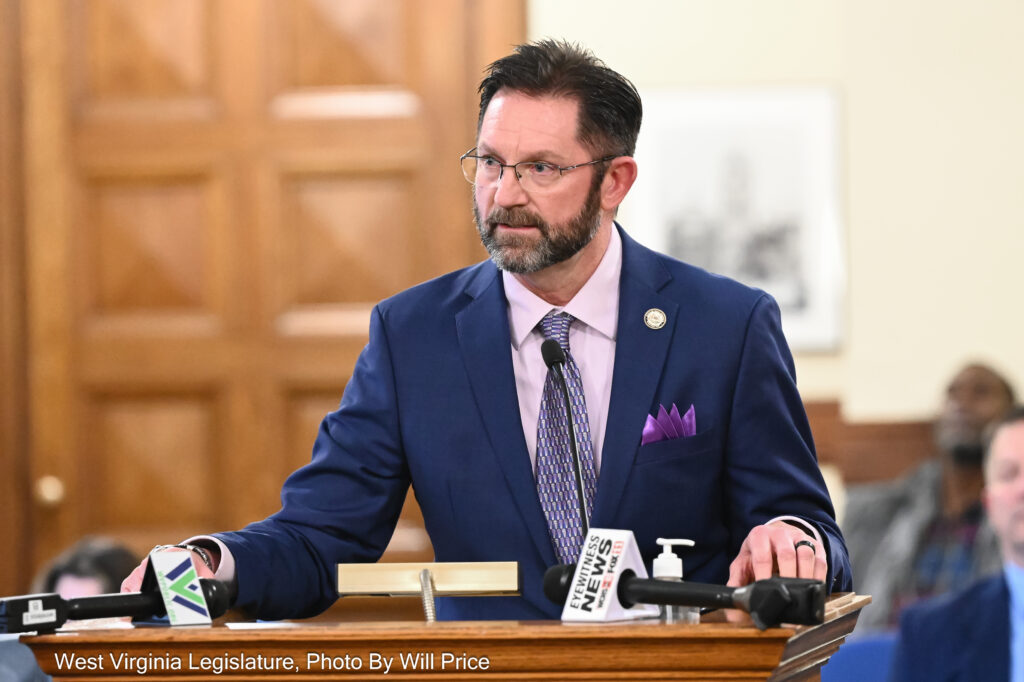Proposing reforms throughout West Virginia’s Department of Corrections and Rehabilitation (DCR) will continue to surface in the state legislature’s upcoming 2024 regular session.
The two leaders of that embattled department recently noted some progress that has been made on several fronts.
Bad publicity, lawsuits and allegations were some of the concerns that, DCR Commissioner William Marshall and his boss, Department of Homeland Security Secretary Mark Sorsaia, attempted to counter in a presentation to the interim Legislative Oversight Committee on Regional Jail and Correctional Facility Authority regarding conditions in jails and correctional facilities last month.
Marshall said jail guard vacancy rates were down, while facility maintenance is ongoing.
“As of right now, we’re down to having 113 doors to be exact that are needed to repair,” Marshall said. “As you all know, that was a big issue for us.”
Marshall said the department has to be good stewards of the $60 million now being spent on deferred maintenance and not just blanket spend that money.
“We’re focusing on HVAC systems, we’re focusing on security fences, we’re focusing on water chases, we’re focusing on a lot of things that really impact the day-to-day operations of our people,” Marshall said. “I think that’ll keep us in a positive light that we don’t operate our facilities with broken sinks, broken cell doors, broken sallyport doors, whatever it might be.”
Marshall told the committee a big issue for him was that throughout the jails, when COVID-19 hit, they had taken their gyms, and used them as “storage for PPEs, or mattresses or water, whatever it might have been.”
“I’ve mandated that every jail clean out their gyms,” Marshall said. “If we had to buy storage facilities from wherever, we would do that. That’s such a great inmate management tool, to have recreation for those inmates where they can go in there and they can blow off some steam and they can shoot some ball, or they can play cornhole or do whatever they need to do to get their minds off of things. You end up having a better inmate. And along those same lines, we added workout facilities for our employees.”
Marshall told the committee that 35 facilities now have new inmate phone services. He said 12,000 tablets have been issued to the inmates and residents which, in the last year and a half, have facilitated more than 677,000 virtual visits for inmates.
“Visits that did not impact the economics of a family where they couldn’t drive where they had a vehicle even that could make it there, or a juvenile’s family where they may not be able to get there to visit that juvenile,” Marshall said. “That’s also 677,000 people that didn’t come through the doors that our employees had to deal with.”
Marshall talked about innovations in the often-slighted rehabilitation part of the department. He explained that those tablets have 170 life skill programs for inmates,
“They can go in and learn how to balance a checkbook, understand how to manage their life, budget money, wash clothes, do dishes, and a lot of other life skills,” he said. “Once they get out, if they get some sort of vocational certification while they’re in, they can get opportunities through the Department of Labor that’s connected to our tablets.”
Secretary Sorsaia told the committee his thoughts on innovative ways of marketing the correction officer position in terms of working with the majority of people in the system that are not dangerous, but rather young people who have problems.
“The correction officer is the young person in a jail who sees an 18-year-old kid who’s gone to jail for the first night in his life,” Sorsaia said. “And he’s over in the corner crying. The correction officer could be the person to go over there and give that young person a little bit of comfort. In a lot of ways a correction officer not only protects the public from people in jails but in some ways they can be a social worker that can work with inmates, they can help inmates.”
These were some of the overlooked issues corrections leaders say are changing within the department.






















